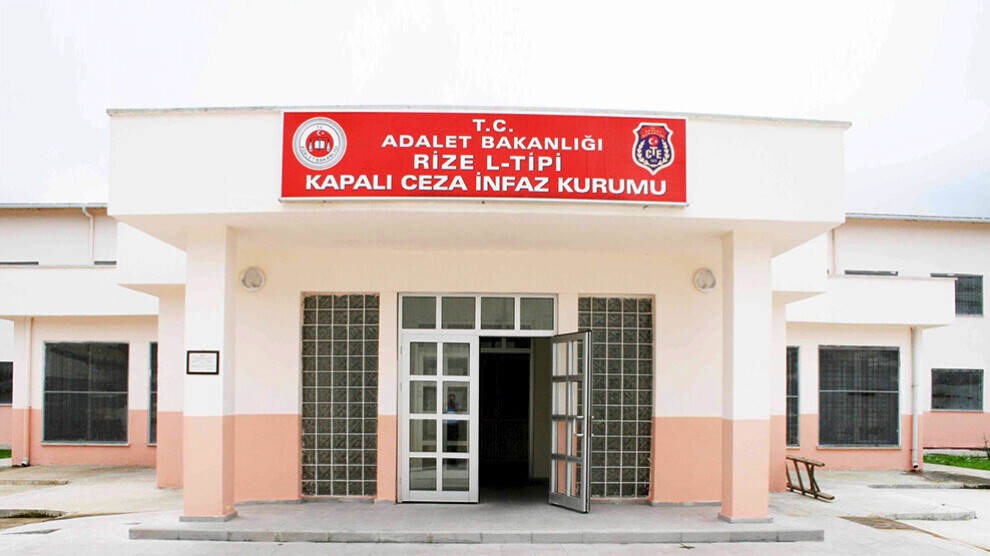Prisoners expose new violations of rights in Rize jail
Political prisoner Taner Ergün, said that an infection is spreading in Rize jail, particularly among the seriously ill prisoners, but they are not being given any medication.
Political prisoner Taner Ergün, said that an infection is spreading in Rize jail, particularly among the seriously ill prisoners, but they are not being given any medication.

There are new reports of rights violations against political prisoners from Rize L-Type Prison. Umut Savaş Koçyiğit, Taner Ergün, Vefa Yılmaz and Hüseyin Karabulut told their families in their weekly telephone conversations about the attacks on the prisoners' right to life and health. They said that after the start of the hunger strike (on 27 November) for the freedom of Abdullah Öcalan and a political solution to the Kurdish question, the prison administration imposed disciplinary sanctions, and prisoners who fell ill due to the fast were not taken to the infirmary, let alone referred to hospitals.
“Creating a basis for Öcalan’s freedom”
Despite the reprisals, the prisoners remain determined. In a telephone conversation with his family, prisoner Taner Ergün said that protests will continue until Kurdish representative Abdullah Öcalan is released. Ergün said: “We are currently experiencing the most intense form of isolation, which has spread from Imralı Island to prisons across the country. Although many of our friends in prison are seriously ill, their release is prevented. Our hunger strike is also for these friends. We have many friends whose release is prevented by arbitrary practices. We will continue our hunger strike until the isolation of Mr. Öcalan and the arbitrary treatment of political prisoners end.”
“A visit to the infirmary every two weeks”
Ergün recalled that many political prisoners will not be released even after their term has ended due to the new prison law, which makes repentance a possible condition for release. At the same time, the health situation in prisons is becoming increasingly difficult as an epidemic spreads. Ergün explained: “There is a spreading epidemic and almost all prisoners are currently sick. They are taken to the infirmary every two weeks but are not given any medication. When prisoners are taken to the infirmary, they are examined while standing for two minutes. Medication doesn't come into prison anyway, prisoners only receive medication for two months, if at all. Older, sick prisoners therefore have great difficulties. When we seek treatment, we are told that there is no medication. There are many problems in the prisons.”